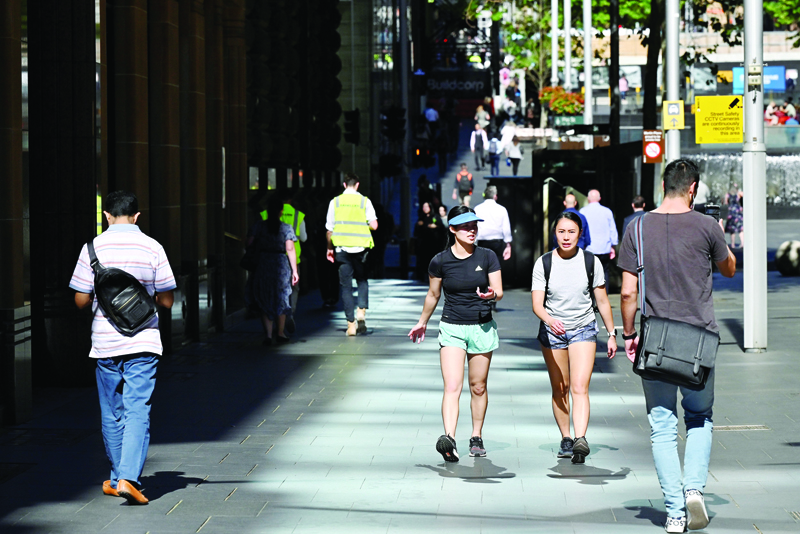
SYDNEY: Australia's central bank trimmed interest rates to near zero yesterday and ramped up its bond-buying plans in a much-needed salve to aid economic recovery from the country's worst downturn in a generation. The Reserve Bank of Australia (RBA) said it would buy A$100 billion ($70.4 billion) of government bonds with maturities of around five to 10 years over the next six months, a more aggressive pace than some had expected.
The RBA also cut its target for three-year bond yields to 0.1 percent, from 0.25 percent, to align with the cash rate, which, it pledged will remain unchanged for at least three years. The move nudged the local dollar down to $0.7042, while yields on bonds out to five years all hit historic lows. "Today's decision reflects the Reserve Bank's commitment to do what we reasonably can, with the tools that we have, to support the recovery of the Australian economy," Governor Philip Lowe said in a speech in Sydney.
"The Board views addressing the high rate of unemployment as a national priority and it wants to do what it can to support job creation." While the central bank did nudge up forecasts for economic growth to take account of the country's success in containing the coronavirus, Lowe bluntly dismissed talk the recession was over.
"I don't know how anyone concluded that we're not in recession," said Lowe, referring to recent media reports that the recession had ended. "On any reasonable definition we're in a recession." Australia's A$2 trillion ($1.41 trillion) economy was hit hard as the coronavirus pandemic forced businesses to down shutters, leaving hundreds of thousands without work.
The jobless rate is hovering near 7 percent, having risen from around 5 percent before the COVID-19 pandemic. Economists say the actual level of unemployment would be even higher if those on government support are included. For its part, Australia's conservative government has unleashed A$300 billion in emergency stimulus to prop up growth this year, including A$17.8 billion in personal tax cuts.
While the RBA has welcomed the fiscal largesse, some critics have said the government's tax cuts weren't the best way to spur consumer spending. Instead, they say direct cash transfers to low-income households would have given a bigger bang for the buck while greater childcare support would aid incomes and labor supply.
And with the RBA's pledge to keep rates lower for longer, economists expect the government to further boost spending. "We see fiscal policy continuing to play a key role in stimulating the economy and expect that the government will need to do more," National Australia Bank economists wrote in a note. Lowe himself noted the responsibility for job creation fell mainly on the shoulders of business and government.
Bottom of barrel
Some economists said the RBA's efforts were unlikely to have a huge impact on the economy, though they would help indebted households and spur demand for new housing while a weaker Australian dollar would help exporters. With yesterday's easing, the RBA was also now running low on rate ammunition.
Lowe emphasized the RBA could and would buy more bonds if needed, though he argued a move to negative interest rates was "extraordinarily unlikely". "The RBA has now hit the bottom of the barrel in terms of conventional interest rate cuts, but as other major central banks have shown, there is still plenty it can do in terms of ongoing quantitative easing," said AMP Chief Economist Shane Oliver. - Reuters










